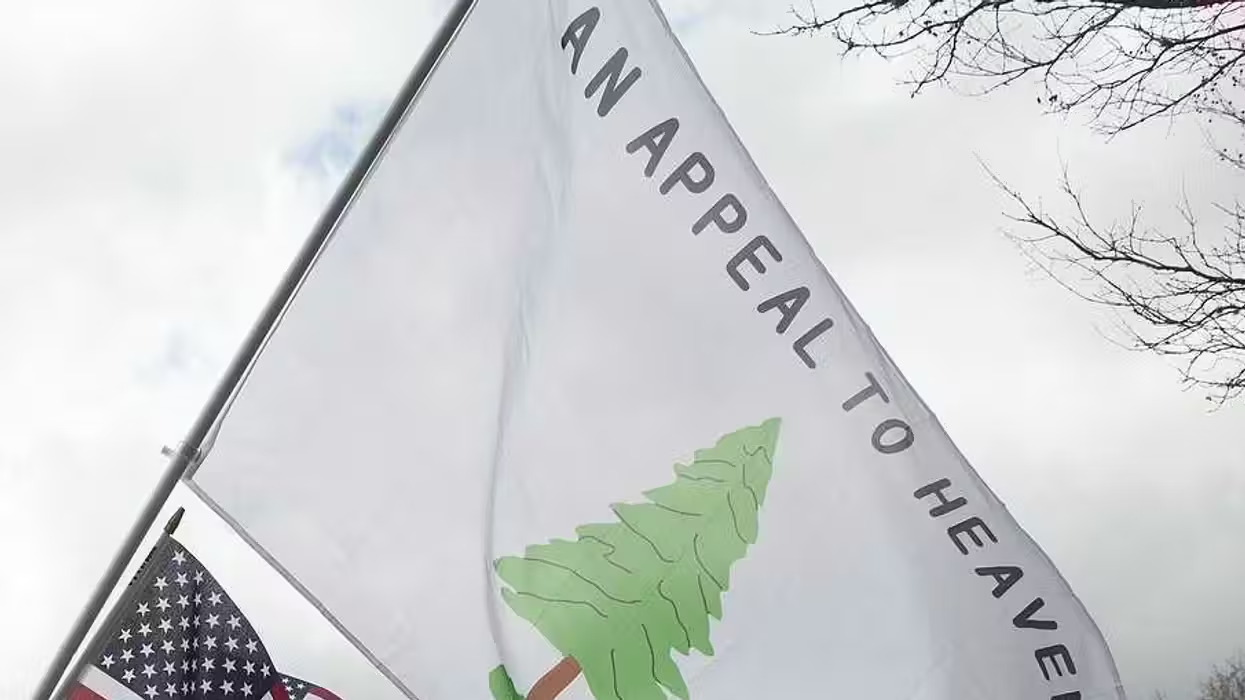
© 2025 Blaze Media LLC. All rights reserved.
Colo. Considering Blowing Up Frozen Cows Found in the Mountains -- Cue Flashbacks of the 'Exploding Whale
April 17, 2012
Flashback: Remember the exploding whale? --

If you remember the infamous story of the "exploding whale," you might be ale to predict how this story ends.
Here's what we mean: the Forest Service in Colorado is considering using explosives to dislodge a group of cows that wandered into an old ranger cabin high in the Rocky Mountains, then died and froze solid when they couldn't get out.
You might want to go back and read that again.
The carcasses were discovered by two Air Force Academy cadets when they snow-shoed up to the cabin in late March. Rangers believe the animals sought shelter during a snowstorm and got stuck and weren't smart enough to find their way out.
The cabin is located near the Conundrum Hot Springs, a nine-mile hike from the Aspen area in the Maroon Bells-Snowmass Wilderness area.
Michael Carroll, a spokesman for the Wilderness Society in Colorado, said cattle are often allowed to wander on federal wilderness lands as long as ranchers get a permit from the Forest Service, and sometimes the animals get separated from the herd.
The Forest Service said Tuesday the animals came from a herd of 29 cows that went missing last fall from the nearby Gunnison National Forest where the rancher had a permit. An aerial search failed to turn up any sign of the animals.
Forest Service spokesman Brian Porter said rangers saw about six cows inside the cabin, and several dead cows lying around the building.
"There is a lot of snow, and it's hard to determine how many cows are there," Porter said.
U.S. Forest Service spokesman Steve Segin said Tuesday they need to decide quickly how to get rid of the carcasses.
"Obviously, time is of the essence because we don't want them defrosting," Segin said.
Segin said officials are concerned about water contamination in the nearby hot springs if the cows start decomposing during the thaw.
The options: use explosives to break up the cows, burn down the cabin, or using a helicopters or trucks to haul out the carcasses.
If the whole scenario sounds familiar, that's because it is. Back in the early 70s, a whale washed ashore in Portland and officials decided the best way to remove the carcass would be to pack it full of explosives and light the fuse.
Recently, the famous KATU-TV journalist behind the report, Paul Linnman, recounted the incident on its 50th anniversary and has the hilarious original footage:
How did that one end? Suffice it to say the news camera and bystanders had to run for cover from the falling whale blubber, and a car nearly a quarter-mile away was totaled by a chunk of exploding flesh:



Oh, and they ended having to bury the whale carcass anyway.
But Segin said using helicopters is too expensive and rangers are worried about using trucks in a wilderness area, where the government bars permanent improvements and tries to preserve the natural habitat.
Carroll praised the Forest Service for trying to remove the animals while doing the least damage. He said burning down the cabin or packing out the carcasses are probably the best solutions.
"They need to use the minimal tool to get the job done. They don't want to leave the land scarred," he said.
Segin said the Forest Service occasionally uses explosives to destroy carcasses of animals that can't be retrieved.
"We've used them as a means of disposal to remove dead horses, elk and other animals in areas where it's impossible to get them out," he said.
As for the whale, it's become somewhat of a legend. According to KATU, "media watch groups have called it the single-most viewed news story in history and the BBC estimated several years ago that it had been viewed online about 350 million times in various incarnations."
In other words, should officials detonate the cows, we could have another instant classic on our hands.
The Associated Press contributed to this report.
Want to leave a tip?
We answer to you. Help keep our content free of advertisers and big tech censorship by leaving a tip today.
Want to join the conversation?
Already a subscriber?
Jonathon M. Seidl is a former managing editor of Blaze News and a best-selling author and speaker. His next book, “Confessions of a Christian Alcoholic,” will be released on October 7, 2025.
Jonathon M. Seidl
Jonathon M. Seidl is a former managing editor of Blaze News and a best-selling author and speaker. His next book, “Confessions of a Christian Alcoholic,” will be released on October 7, 2025.
more stories
Sign up for the Blaze newsletter
By signing up, you agree to our Privacy Policy and Terms of Use, and agree to receive content that may sometimes include advertisements. You may opt out at any time.
Related Content
© 2025 Blaze Media LLC. All rights reserved.
Get the stories that matter most delivered directly to your inbox.
By signing up, you agree to our Privacy Policy and Terms of Use, and agree to receive content that may sometimes include advertisements. You may opt out at any time.






